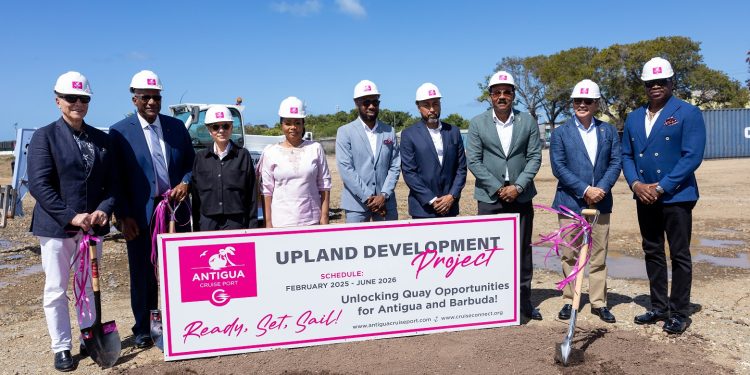The Antigua and Barbuda Prime Minister Hon. Gaston Browne is hailing the agreement signed with Global Ports Holdings as one of the key decisions of his administration that was beneficial to the country especially at a critical time; the COVID-9 pandemic.
Accordingly, the Prime Minister Browne credited the leasing of cruise port facilities to Global Ports Holding as a critical decision that maintained economic stability during the COVID-19 pandemic.
Speaking on the weekly radio pogramme of Pointe FM, the Browne and Browne show, PM Browne identified the key outcomes as follows:
$80 Million US Investment: Building the fifth cruise berth without using national funds.
Sustained Capital Projects: Alongside PLH in Barbuda, GPH’s investments helped keep the economy afloat when tourism arrivals plummeted.
PM Browne noted that critics had misrepresented the GPH agreement, falsely claiming that Antigua and Barbuda was transferring ownership of public assets. In reality, no properties such as Heritage Quay were sold or transferred to GPH.
“There is absolutely no transfer of ownership for any properties to Global Ports,” he stated definitively.
Describing the Global Ports Partnership as a Case Study in Empowerment Capitalism, the prime minister noted that prior to GPH’s involvement, Antigua and Barbuda had borrowed US$22 million to develop Heritage Quay. Yet, despite nearly two decades, the debt had barely been reduced, hovering around US$21.6 million by 2019. The head taxes collected—approximately US$1 million annually—were insufficient even to cover interest payments.
Through the agreement, the government was able to achieve two critical outcomes; transferring risk associated with the loan to another entity (GPH) while at the same time generating growth.
Browne explained that under his government’s empowerment capitalism model:
- The debt burden was transferred to Global Ports.
- GPH invested an additional US$35 million to construct a fifth cruise berth.
- Another US$30 million is currently being invested in landside facilities.
Importantly, no government properties were sold to Global Ports. Ownership of national assets like Heritage Quay remained firmly with the people of Antigua and Barbuda.
“We didn’t even originate this model. We customized it for Antigua and Barbuda as part of our own bespoke economic model: empowerment capitalism,” PM Browne emphasized.
This model rejects traditional foreign extractive investment patterns. Instead, it emphasizes expanding domestic ownership and retaining profits within the local economy to fund national development.




funny you mention everything they loaned but not what they received in return. Was the embassy or bulk CIP involved or do they own shares in WIOC as well? They had to have gotten something for taking on this debt but I love how this one sided article fails to mention